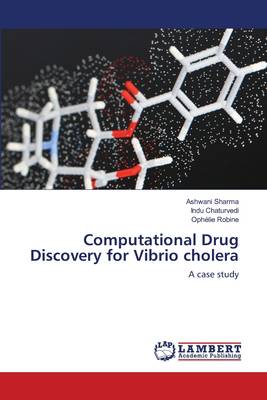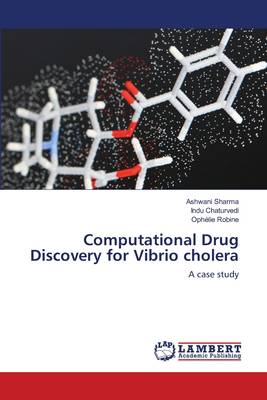
- Afhalen na 1 uur in een winkel met voorraad
- Gratis thuislevering in België vanaf € 30
- Ruim aanbod met 7 miljoen producten
- Afhalen na 1 uur in een winkel met voorraad
- Gratis thuislevering in België vanaf € 30
- Ruim aanbod met 7 miljoen producten
Zoeken
Computational Drug Discovery for Vibrio cholera
A case study
Ashwani Sharma, Indu Chaturvedi, Ophélie Robine
Paperback | Engels
€ 64,45
+ 128 punten
Omschrijving
Molecular docking plays an important role in the process of drug discovery; specifically in virtual screening of combinatorial libraries and optimization of the lead compounds. The ability to model and predict the binding sites of proteins on one hand and in silico screening of large number of compounds on the other hand has encouraged the development of new algorithms and streatgies for docking programs. While docking does not completely eliminate the need for experiments, lab-on-chip type of approaches coupled with computational high throughput screening have been a boon to the drug discovery activity. It will help in reducing the cost of novel drug development. In the current book on computational drug discovery, we described small information about the case study of drug development against Tuberculosis and Herpes diseases. In later case study, we provided detail description about protein modeling to natural drug finding against Cholera disease.
Specificaties
Betrokkenen
- Auteur(s):
- Uitgeverij:
Inhoud
- Aantal bladzijden:
- 88
- Taal:
- Engels
Eigenschappen
- Productcode (EAN):
- 9783659406836
- Verschijningsdatum:
- 1/06/2013
- Uitvoering:
- Paperback
- Afmetingen:
- 150 mm x 220 mm
- Gewicht:
- 141 g

Alleen bij Standaard Boekhandel
+ 128 punten op je klantenkaart van Standaard Boekhandel
Beoordelingen
We publiceren alleen reviews die voldoen aan de voorwaarden voor reviews. Bekijk onze voorwaarden voor reviews.








